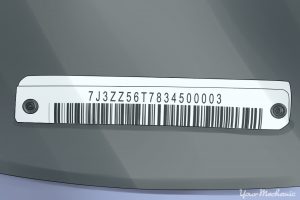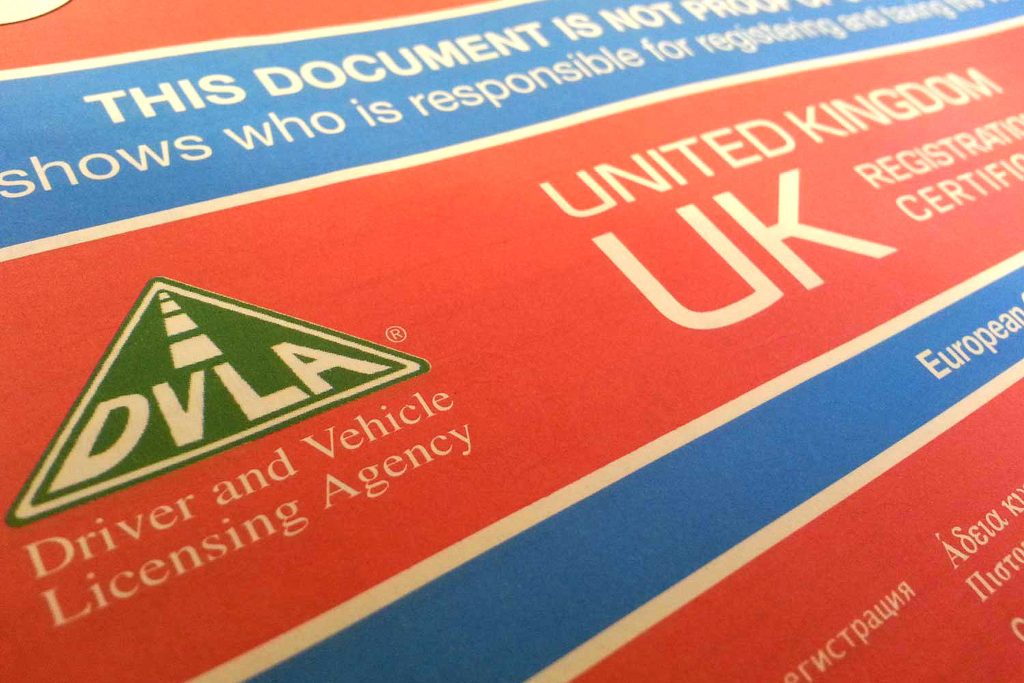Obviously there aren’t any guarantees to prevent you from being a victim of a scam, but this list should help you to reduce the risks by making sure you know which questions to ask about the seller, the registration certificate (V5C) and the background of the vehicle. For the full details why these checks are important see the advice at the DVLA (gov.uk) here.
Before seeing the vehicle
- Ask the seller for the registration number, make and model of the vehicle, the expiry date of the tax disc and the MoT test number. You can then use this information to get a vehicle history check before arranging to see the vehicle.
- Arrange to see the vehicle in daylight at the seller’s home and not in a public place. Ask the seller if they are the registered keeper and whether you will be viewing the vehicle at the registered keeper’s address (shown on the V5C). If the seller is not the registered keeper, have they satisfied you that they have the right to sell the vehicle?
- Consider arranging a vehicle inspection by a qualified engineer.
Carefully think about the Seller
- Can the seller show you the V5C? Do the details shown on it match all documentation provided?
- Is the seller the registered keeper on the V5C?
- Have you asked to see ID? Not many people bother with this, but it’s an additional safety check if you aren’t sure.Can the seller satisfy you that they own or have the right to sell the vehicle? e.g do they have a bill of sale/receipt? (remember the V5C does not prove this).
Before seeing the car
- Ask the seller for the registration number, make and model of the vehicle, the expiry date of the tax disc and the MoT test number. Don’t forget – we provide those as part of our Free package here. You can then use this information to get a vehicle history check before arranging to see the vehicle.
- Check if the vehicle has been in an accident for free.
- Arrange to see the vehicle in daylight at the seller’s home and not in a public place. Ask the seller if they are the registered keeper and whether you will be viewing the vehicle at the registered keeper’s address (shown on the V5C). If the seller is not the registered keeper, have they satisfied you that they have the right to sell the vehicle?
Optional: Consider arranging a vehicle inspection by a qualified engineer.
Checking the V5 (log book)
- Is there a DVL watermark in the V5C when you hold it up to the light? There should be.
- If the seller has the blue version of the V5C, is the serial number in the range BG 8229501 to BG9999030 or BI2305501 to BI2800000? If so, DON’T proceed with the sale and contact the police when it’s safe to do so. (Even if the serial number is not in this range, you still need to be careful of forged documents.)
- Has the serial number been amended or tampered with, or is part of the V5C missing? Does it look dodgy? If so, walk away.
Checking over the vehicle
- Does the vehicle identification number (VIN), engine number and colour match those shown on the V5C? Look for signs of alteration or tampering.

An example of a VIN number - Do the number plates match the registration number shown on the V5C?
- Is the VIN number and/or registration number etched on glass? If so do they match those on the V5C and all other etched glass on the vehicle? Check they haven’t been tampered with or covered by stickers.
- Do all the locks open with the same key? Is there a spare key?
- Check that the locks haven’t been forced or replaced – if you see signs of tampering with the locks, or aren’t sure, then question the seller.
Overall if you aren’t sure on something, trust your instinct and walk away. It is better to be safe, than sorry later. A car history (data) check can put your mind at ease, to an extent, but armed with all this information you’ll be prepared for the worst.
Taking a trusted friend who happens to be a mechanic isn’t really possible for a lot of people sadly, but if that does apply to you, then consider yourself very lucky indeed. These days, a police officer friend would also be a good idea – they are good at spotting “red flags” related to car crime!

HOW DO I BUY A CAR CHECK FOR A LAND ROVER DISCO
This is golden, thanks. I bought a car but got scammed, maybe your next article can be about my rights, and how to get a refund from a missold car? 🙂